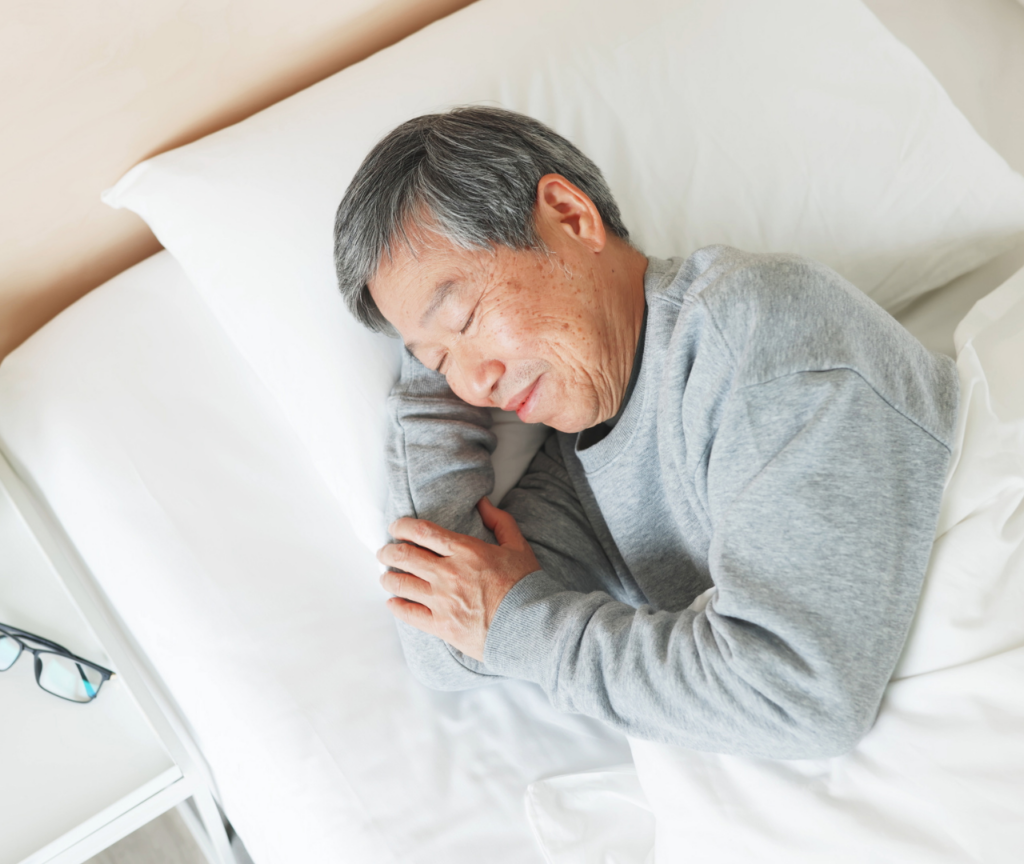As we age, our sleep patterns naturally change. Seniors often experience lighter sleep, more frequent awakenings during the night, and a decreased need for total sleep time. While these changes are normal, persistent sleep problems can negatively impact physical and mental health, affecting mood, memory, and overall well-being. For seniors receiving care at home, ensuring adequate and restful sleep is crucial. This article explores common sleep challenges faced by older adults and offers practical tips for improving sleep quality within the home care setting.
Understanding Sleep Changes in Seniors:
Several factors contribute to altered sleep patterns in older adults. These include:
- Changes in circadian rhythm: The body’s internal clock that regulates sleep-wake cycles can become less precise with age, leading to earlier bedtimes and wake-up times.
- Reduced melatonin production: Melatonin, a hormone that promotes sleep, naturally decreases with age.
- Underlying medical conditions: Chronic pain, arthritis, heart disease, respiratory problems, and neurological conditions like dementia can disrupt sleep.
- Medications: Certain medications can have side effects that interfere with sleep.
- Lifestyle factors: Lack of physical activity, poor diet, and excessive caffeine or alcohol consumption can contribute to sleep problems.
- Psychological factors: Stress, anxiety, and depression are common among seniors and can significantly impact sleep quality.
Practical Tips for Promoting Better Sleep:
Creating a conducive sleep environment and establishing healthy sleep habits are essential for improving sleep in seniors receiving home care. Here are some effective strategies:
- Establish a Regular Sleep Schedule: Encourage a consistent sleep-wake cycle by going to bed and waking up at the same time every day, even on weekends. This helps regulate the body’s natural clock.
- Optimize the Sleep Environment: Ensure the bedroom is dark, quiet, and cool. Use blackout curtains, earplugs, or a white noise machine if needed. A comfortable mattress and pillows are also crucial.
- Promote Daytime Activity: Encourage regular physical activity during the day, such as gentle walks, chair exercises, or gardening. Physical activity can help tire the body and promote better sleep at night. However, avoid strenuous exercise close to bedtime.
- Limit Daytime Naps: While short naps can be refreshing, long or frequent naps during the day can disrupt nighttime sleep. If a nap is necessary, limit it to 20-30 minutes and avoid napping late in the afternoon.
- Manage Diet and Hydration: Avoid heavy meals, caffeine, and alcohol close to bedtime. These substances can interfere with sleep. Encourage a light snack before bed if needed, such as warm milk or herbal tea. Ensure adequate hydration throughout the day but limit fluids before bedtime to reduce nighttime bathroom trips.
- Create a Relaxing Bedtime Routine: Establish a calming bedtime routine to signal to the body that it’s time to sleep. This could include a warm bath, reading a book, listening to calming music, or practicing relaxation techniques like deep breathing or meditation.
- Address Underlying Medical Conditions: Work with the senior’s healthcare provider to manage any underlying medical conditions that may be contributing to sleep problems. This may involve adjusting medications, managing pain, or treating other health issues.
- Review Medications: Consult with the doctor or pharmacist to review the senior’s medications and identify any that may be interfering with sleep. Alternative medications or adjustments to dosage or timing may be possible.
- Encourage Social Interaction: Social isolation and loneliness can contribute to sleep problems. Encourage social interaction through visits from family and friends, participation in social activities, or joining senior groups.
- Cognitive Behavioral Therapy for Insomnia (CBT-I): CBT-I is a proven effective therapy for insomnia. It helps individuals identify and change negative thoughts and behaviors that contribute to sleep problems. This can be adapted for the home care setting with the help of a trained therapist.
The Role of Home Caregivers:
Home caregivers play a vital role in promoting healthy sleep for seniors in their care. They can:
- Implement the strategies mentioned above consistently.
- Monitor sleep patterns and report any significant changes to the healthcare provider.
- Provide companionship and emotional support to reduce anxiety and promote relaxation.
- Create a calm and supportive environment conducive to sleep.
Conclusion:
Adequate and restful sleep is essential for the physical and mental well-being of seniors. By understanding the common sleep challenges faced by older adults and implementing practical strategies within the home care setting, caregivers and families can significantly improve sleep quality. Creating a regular sleep schedule, optimizing the sleep environment, promoting daytime activity, managing diet and hydration, establishing a relaxing bedtime routine, and addressing underlying medical conditions are all crucial steps. With consistent effort and a supportive environment, seniors can enjoy better sleep and a higher quality of life. If sleep problems persist despite these efforts, consulting with a healthcare professional or sleep specialist is recommended for further evaluation and treatment.

